Peace Education
Some pictures at your disposal |
|---|
| Vidoes from the training seminar |
Background:
"A culture of peace will be achieved when citizens of the world understand global problems, have the skills to resolve conflicts and struggle for justice non-violently, live by international standards of human rights and equity, appreciate cultural diversity, and respect the Earth and each other. Such learning can only be achieved with systematic education for peace."
Hague Appeal for Peace Global Campaign for Peace Education
This seminar on “Peace Education” aims at developping - in an environment of tolerance, care and respect - skills, attitudes and knowledge with co-operative and participatory learning methods. One way to meet the challenges of peace education is to build bridges of support among participants. The notion "think globally, act locally" is central to educating for a culture of peace in that it links theory with practice, international issues to individual efforts.
Dates:

This course took place from June 6th - 12th, 2005 in Melilla (Spain). It was organised in cooperation with the Injuve, the National Agency for the YOUTH Programme in Spain.
Aims and Objectives:
This course aimed at exchanging and at sharing of good practices in the field of the education for peace.
The following concrete objectives have been set in order to reach the aims as described above:
- To gain an understanding of a local, national, or international conflict;
- To increase knowledge about different aspects of conflict and the nature of causes and consequences;
- To provide educational support and time for the participants to share about their own experiences and knowledge;
- To support the intercultural exchange between participants;
- To explore the political, economical and human frame of peace education in the Euromed space.
- To explore the role the youth-non formal education field can play in promoting peace education and its concepts;
- To allocate space for the participants to develop project ideas.
Profile of participants
The course is intended to be an opportunity for further training for youth workers and youth leaders who:
- Are experienced in the YOUTH Programme and / or the Euromed YOUTH Programme.
- Have experience in peace education: as trainer, youth worker or volunteer.
- Are ready to take the challenges that the exploration of an unknown space presents.
- Are committed to prepare themselves for the working subjects, previous to their arrival and to do the remote work requested by the team in case of selection;
- Have the willingness to cooperate and create together during the training course;
- Are strongly motivated to develop a project within the EuroMed YOUTH Programme as result of the course; to provide the group with their own experiences and educational material;
- Are motivated to undergo training and able to attend the course for its full duration;
- Are able to communicate and work in at least one of the two working languages of this training course (English, French);
- Are resident in a member state of the European Union or in a Mediterranean country signatory to the Barcelona Declaration.
Methodology
The course was based on the principles and practices of non-formal education and conceived according to a learner-centred approach based on active and interactive methods. In this way participants need to self organise part of the activities and thus take a personal responsibility for their learning process. They should be open for an experiential learning experience in a situation to share their practice, to test tools and methods, to analyse and to produce common material.
Programme Elements:
- Why EuroMed co-operation projects?
- Group dynamics;
- Introduction to and definitions of the "Peace Education";
- Exploration of the socio-economic regional situation and its impact or influence on the topic;
- Sharing on good practices and experiences;
- Presenting relevant projects as good examples;
- Reflecting on how to apply peace education methods as a tool for intervention in order to build peace in their own contexts;
- Testing and evaluation of the activities;
- Partnership between participants’ organisations;
- Overall evaluation of the course
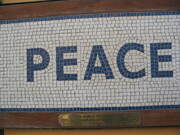
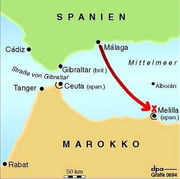
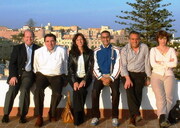 The team: Bernard Abrignani, German Ortiz Sanchez
The team: Bernard Abrignani, German Ortiz Sanchez
Paloma Iznaola, Faudhil Moussi
Andres Vicente Navarete and Ayelet Roth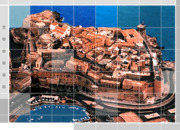
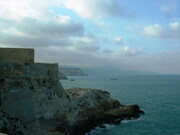 Impressions from Melilla
Impressions from Melilla
